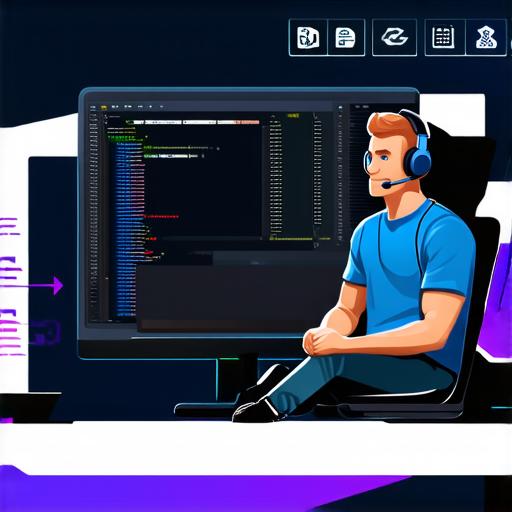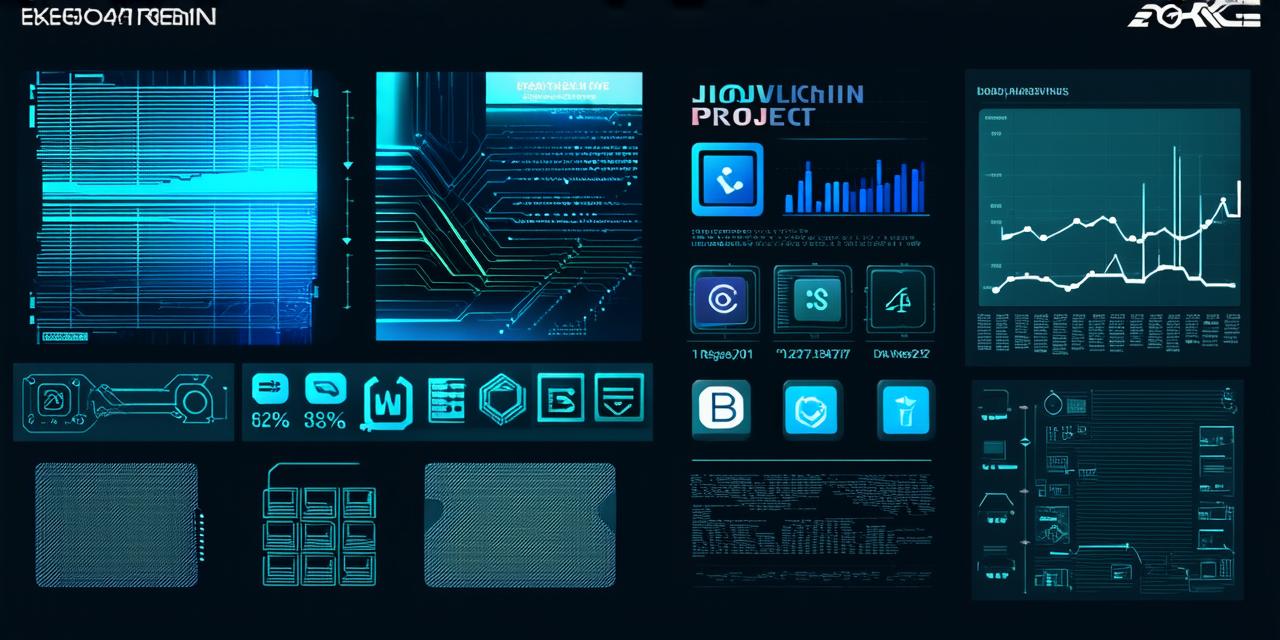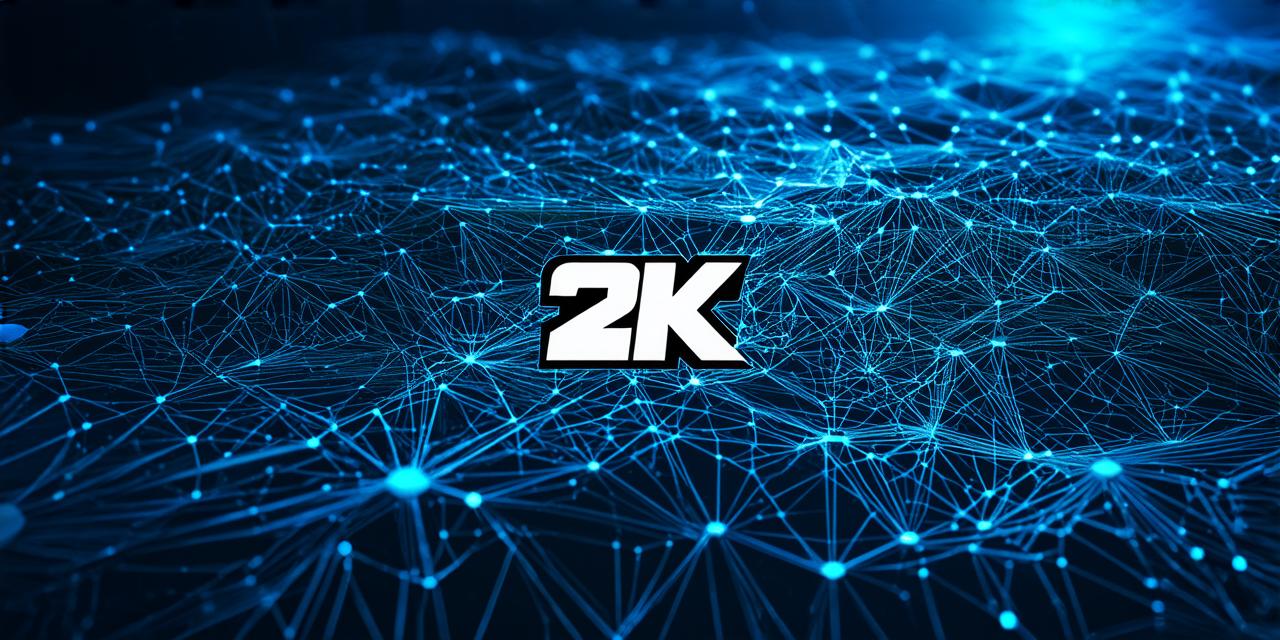Introduction
In recent years, blockchain technology has revolutionized various industries by providing a secure and decentralized platform for transactions. Blockchain development projects have gained immense popularity among developers, businesses, and investors due to their potential to create trustless systems that eliminate intermediaries and promote transparency.
The Basics of Blockchain Technology
Before diving into the world of blockchain development projects, it’s crucial to understand the basics of blockchain technology. A blockchain is a distributed ledger that records transactions in a secure and transparent manner. It consists of a series of blocks that contain information about transactions, which are verified and validated by a network of nodes. Once a block is added to the chain, it cannot be altered or deleted, creating an immutable and tamper-proof record of all transactions.
The key features of blockchain technology include:
- Decentralization: Blockchain technology eliminates intermediaries, allowing for peer-to-peer transactions.
- Immutability: Once a transaction is recorded on the blockchain, it cannot be altered or deleted, creating an immutable record.
- Transparency: All participants on the network can view the transaction history, promoting transparency.
- Security: Blockchain technology uses cryptography to secure transactions and prevent fraud.
Types of Blockchain Platforms
There are several blockchain platforms available for building decentralized applications (dApps), including public, private, and hybrid platforms. Each platform has its unique features and capabilities, making it suitable for different use cases.
Public Blockchain Platforms:
These platforms are open to everyone, allowing anyone to participate in the network. Examples include Bitcoin, Ethereum, and EOS. Public blockchain platforms are ideal for applications that require a high level of transparency and security.

Private Blockchain Platforms:
These platforms are restricted to a specific group of participants, usually within an organization or consortium. Private blockchain platforms offer more control over the network, allowing organizations to customize the platform according to their needs. Examples include Hyperledger and Corda.
Hybrid Blockchain Platforms:
These platforms combine both public and private blockchains, providing the benefits of both worlds. Hybrid blockchain platforms are ideal for applications that require a balance between transparency and privacy.
Popular Programming Languages for Blockchain Development
When it comes to building dApps on blockchain platforms, there are several programming languages available. The choice of programming language depends on the platform and the use case. Here are some popular programming languages for blockchain development:
- Solidity: Solidity is a high-level programming language used for building smart contracts on Ethereum. It is an object-oriented language that supports inheritance, interfaces, and modifiers.
- Vyper: Vyper is another high-level programming language used for building smart contracts on Ethereum. It is similar to Solidity but more concise and easier to read.
- Java: Java is a popular programming language used for building blockchain applications on the Hyperledger platform. It is an object-oriented language that supports multiple paradigms, including functional programming.
- Go: Go is a modern programming language used for building blockchain applications on the EOS platform. It is designed to be fast and efficient, making it suitable for high-performance dApps.
- C: C is a popular programming language used for building blockchain applications on the Corda platform. It is an object-oriented language that supports multiple paradigms, including functional programming.
Case Studies in Blockchain Development
Now that we have covered the basics of blockchain development let’s look at some real-life examples of successful blockchain projects. These case studies will provide insights into how blockchain technology can be applied to various industries and use cases.
Cryptokitties:
Cryptokitties is a blockchain-based game that allows users to collect and breed unique digital cats. The game was built on the Ethereum platform using Solidity, and it quickly became one of the most popular decentralized applications on the network. Cryptokitties raised over $23 million in funding and created a new market for digital assets.
Origin Protocol:
Origin Protocol is a blockchain-based lending platform that allows users to borrow and lend cryptocurrencies without intermediaries. The platform was built on the Ethereum network using Solidity and uses smart contracts to automate lending and borrowing processes. Origin Protocol has raised over $2 million in funding and has a strong user base in Southeast Asia.
MediLedger:
MediLedger is a blockchain-based platform that allows pharmaceutical companies to track the supply chain of drugs from manufacturer to patient. The platform was built on the Hyperledger Fabric network using Java and provides transparency and traceability in the drug supply chain. MediLedger has been adopted by several pharmaceutical companies, including Merck and Johnson & Johnson.
Factiva:
Factiva is a blockchain-based platform that allows companies to manage their supply chain data securely and transparently. The platform was built on the Corda network using C and provides real-time visibility into the supply chain. Factiva has been adopted by several Fortune 500 companies, including Nestle and Unilever.



